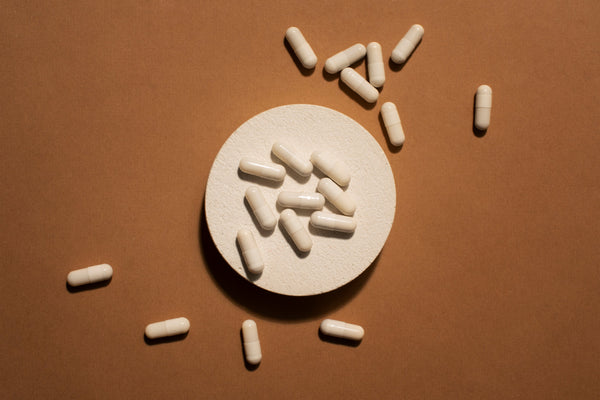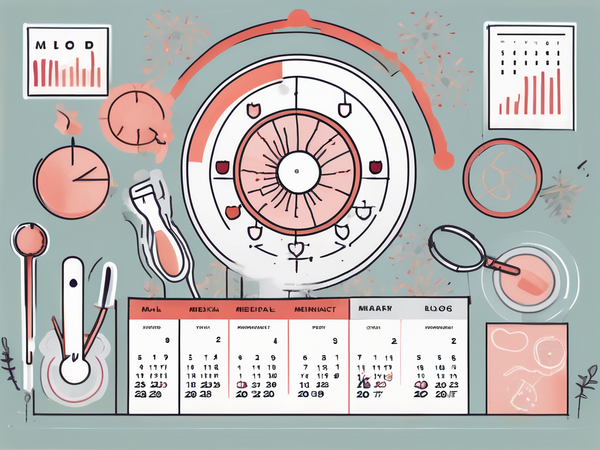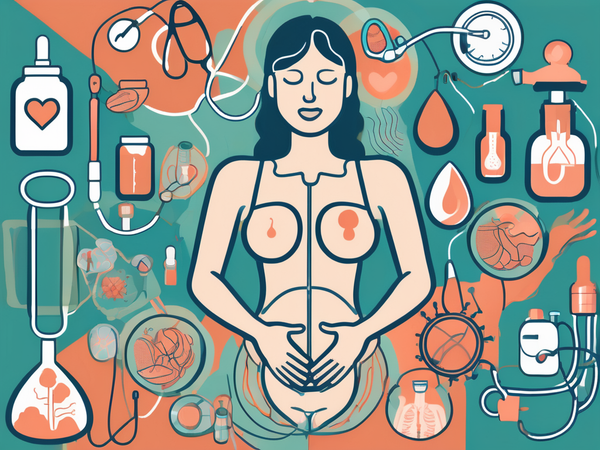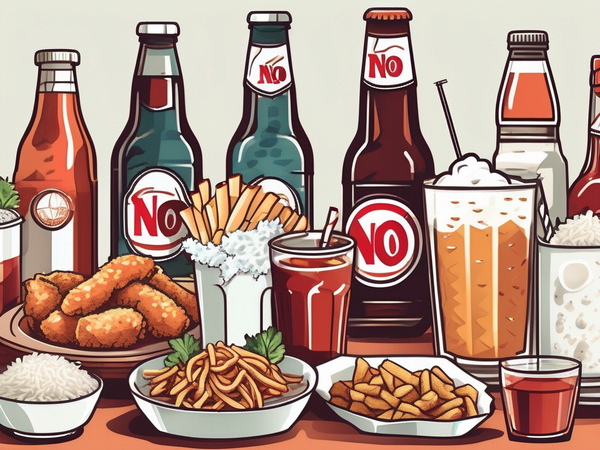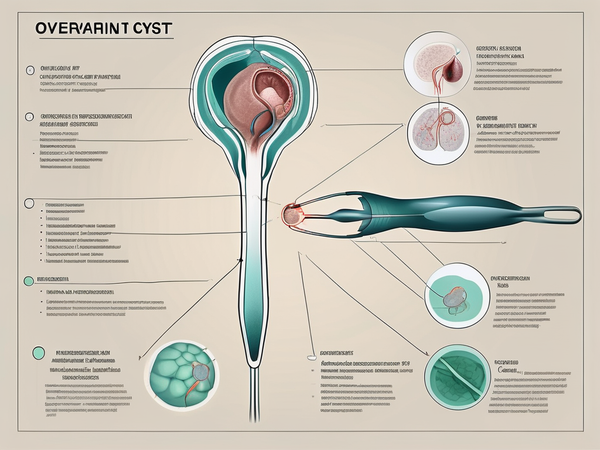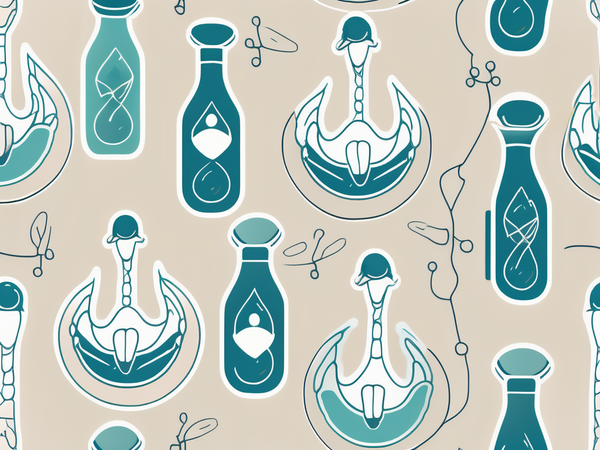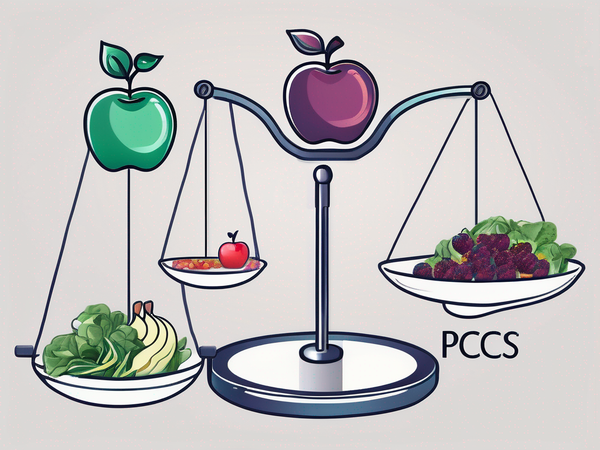Navigating the intricate dynamics of menstruation evokes an array of emotions within us. While some may be dissatisfied with the associated discomfort and agony, there is, however, an unspoken anxiety when its arrival is delayed. We understand these situations all too well, which is why we've created this comprehensive guide to managing period pain and related issues. In this blog, you will discover effective techniques on how to reduce period pain at home, accompanied by valuable tips for finding relief during this time.
Here are a few tips on how to reduce PMS symptoms
1. Avoid Temptations
Imagine this: You're feeling uncomfortable and irritable, and your best friend brings you a bar of chocolate to cheer you up. While the gesture is sweet, it may inadvertently do more harm than good. We all know how tempting it is to indulge in salty chips and sugary treats during that time of the month. These cravings often arise during the luteal phase, which occurs after ovulation and before menstruation. The rise in progesterone during this phase can trigger cravings for sweet, carbohydrate-rich, and fat-rich foods. However, frequently giving in to these temptations can lead to gradual weight gain and increase the risk of conditions like diabetes, heart disease, and obesity. Additionally, excessive consumption of junk food may contribute to menstrual problems such as early menarche, irregular periods, painful menstruation, and heavy bleeding. Refined grains, processed foods, and excessive sugar can also reduce fiber intake, leading to estrogen retention in the body. Elevated estrogen levels may result in PMS symptoms. So ensure that you limit your intake of junk food, fried foods, processed foods, and sugar for healthy menses.
2. Pain Management
If you’re searching for relief for period pain, you first need to understand the mechanism behind the pain. Your uterus has a lining of cells that break down during the start of menses. This releases inflammatory prostaglandins (hormone-like chemical substances) in large amounts. These chemicals cause your blood vessels inside the uterus to narrow, which leads to the contraction of the uterus muscles, causing painful cramps. When inflammatory prostaglandins reach the bloodstream, they can cause additional PMS symptoms such as nausea, diarrhea, vomiting, headaches, etc.
Besides an increase in estrogen, a decrease in progesterone hormone also acts as a contributing factor to period pain, as it helps the uterus lining grow thicker. Thus, pain management should also aim at lowering estrogen and increasing progesterone levels. While some birth control pills act as anti-inflammatory substances that block the production of prostaglandins, providing period cramp relief, they come with side effects. If you are wondering how to reduce period pain naturally, certain alternative treatments for PMS pain management include:
1. Heat Therapy:
Energy produced by heat from hot water bags, bottles, towels, etc. leads to the expansion of capillaries and promotes blood circulation that may cause metabolic stimulation, pain relief, and re-balancing of the autonomic nervous system. Heat compression helps improve blood circulation to the pelvic region by eliminating local blood and fluid retention and reducing congestion and swelling, thereby reducing pain and nerve compression. Heat application also helps alleviate pain by releasing muscle tension and relaxing the abdominal muscles.
2. Supplements:
Certain plant-based organic supplements can serve as a natural, hassle-free solution for your PMS symptoms. Market shelves are loaded with gummies, capsules, tablets, and liquids that offer you a painless period experience. Oral thin strips are gaining popularity due to their ease of consumption, and travel-friendly pocket size. When searching for the right PMS supplements, look for those that have ingredients like Vitex and Ginfort®, as they help provide relief from period pain in the long run.
3. Vitex:
Commonly known as chaste berry, has been proven to reduce PMS symptoms by increasing progesterone levels and decreasing PMS-triggering hormones like prolactin.
4. Ginfort®:
This ginger extract helps in relieving PMS symptoms that manifest in the form of gastric discomforts like bloating, nausea, dyspepsia, etc.
3. Opt for a Healthy, Balanced Diet
Choosing a healthy, balanced diet can significantly alleviate period pain. Opt for foods that reduce inflammation, such as whole grains, fruits, vegetables, legumes, nuts, and seeds. During menstruation, prioritize plant-based foods over animal products, as the latter can potentially increase estrogen levels. Plant-based foods, rich in antioxidants, can combat inflammation and provide relief for period pain.
1. Fiber:
Plant-based foods also offer a higher fiber content compared to animal products. Fiber plays a crucial role in reducing estrogen levels by binding and eliminating it from the body. Lower hormone levels mean less stimulation of uterine cells, resulting in reduced pain.
2. Iron:
Menstruation leads to the loss of iron each month. Including iron-rich foods in your diet becomes essential, as iron is a vital component of red blood cells. Heavy menstrual bleeding can contribute to iron deficiency anemia, leading to fatigue, poor concentration, and difficulty breathing. Consuming iron-rich foods like liver, red meat, kidney beans, edamame, and dried apricots can help replenish iron levels. Animal sources of iron are generally better absorbed than plant sources. Enhancing the absorption of plant-based iron can be achieved by incorporating vitamin C-rich foods such as amla, lemon, kiwi, bell peppers, and tomatoes.
3. Calcium and Vitamin D:
Both calcium and vitamin D supplementation have demonstrated benefits in improving menstrual regularity and ovulation. Vitamin D reduces the production of inflammation-causing prostaglandins, thus alleviating PMS symptoms. It also aids in calcium absorption, which enhances mood and concentration and reduces water retention and pain during menstruation. Vitamin D deficiency is associated with increased uterine contractions, leading to painful periods and accompanying abdominal cramps. Vitamin D can be obtained from seafood, egg yolks, sunlight exposure, or supplements.
The second half of the menstrual cycle sees a drop in estrogen hormones. Along with estrogen decline, serotonin levels also drop in people experiencing PMS. Since it’s a happy hormone, a drop in serotonin may result in mood swings, irritability, food cravings, and even depression. A diet rich in calcium helps increase the production of this happy hormone, reducing the symptoms of PMS. Dairy products, salmon, dark green leafy vegetables, turnip greens, almonds, etc are some good sources of calcium.
4. Exercise
While the idea of exercising during your period may seem unappealing, it's important to recognize the remarkable benefits it can offer. Research has shown that physical activity can provide much-needed relief from period pain and serve as an effective treatment for PMS symptoms. Engaging in simple exercises such as walking, stretching, yoga, and pilates can work wonders by releasing trapped gas, reducing bloating, and promoting overall comfort. Moreover, exercise triggers the release of endorphins, those delightful feel-good hormones that help stabilize mood swings and provide period cramp relief. Not only that, but regular exercise may also contribute to hormone regulation, specifically estrogen, and progesterone, and promote the production of anti-inflammatory compounds that combat the discomfort of PMS symptoms. So, consider embracing physical activity during your period for a surprising array of benefits that extend far beyond the workout itself.
5. Destress
Meditating, journaling, and deep breathing are proven methods of de-stressing. The best part about implementing these techniques is that they involve doing things we love to do. A destressing activity can be anything that makes you feel calm, relaxed, or joyful. Make a conscious effort to destress, especially when you are feeling low during your menses. You can also give yourself permission to indulge in self-care activities that make you feel pampered and nurtured. Treat yourself to a soothing massage, take a warm bath with essential oils, or indulge in your favorite comfort foods. Destressing helps lower cortisol levels—your stress hormone levels—which otherwise may give rise to stress-induced PMS symptoms like anxiety, irritability, mood swings, or depression.
6. Hydrate
If you experience bloating during your periods, it could be due to hormonal fluctuations and dehydration. Most women face severe dehydration during the bleeding phase, especially if their water intake is low. During the luteal phase of menses, levels of the hormone progesterone increase, causing a rise in body temperature. In order to maintain or cool down this temperature, the hormone aldosterone makes the kidney retain internal fluids (water). If water intake is insufficient, it gives rise to PMS symptoms. Studies have also confirmed that drinking water during menstruation is associated with reduced pain and discomfort. Drinking hot water can also improve blood circulation and calm your muscles. This can help to alleviate cramping caused by uterine contractions.
Wrapping Up
If you are still wondering how to reduce period pain, use the above period pain relief tips to your advantage. Tracking periods may also help in several ways, from preparing the necessary items to becoming mentally prepared and staying alert. Thus, tracking periods, eating healthy, avoiding junk food, staying hydrated, destressing, and including plant-based supplements may help you experience a stress-free period and provide relief for period pain. Do remember to inform your practitioner before starting any supplement.
References
https://www.healthychildren.org/English/ages-stages/teen/nutrition/Pages/PMS-and-Sweets.aspx
https://www.pcrm.org/good-nutrition/nutrition-information/using-foods-against-menstrual-pain
https://www.nhs.uk/conditions/vitamins-and-minerals/iron/
https://www.ncbi.nlm.nih.gov/pmc/articles/PMC6494412/
https://www.mpg.de/19818475/0127-nepf-not-just-mood-swings-but-premenstrual-depression-serotonin-transporter-in-the-brain-increased-149575-x
https://www.ncbi.nlm.nih.gov/pmc/articles/PMC7834752/#:~:text=Low%20calcium%20levels%20lead%20to,or%20reducing%20intestinal%20calcium%20absorption.
https://ebn.bmj.com/content/2/2/43
https://www.ncbi.nlm.nih.gov/pmc/articles/PMC5313351/#:~:text=Some%20studies%20have%20reported%20significant,and%20tryptophan%20metabolism%20%5B14%5D.
https://www.ed.ac.uk/centre-reproductive-health/hope/menstruation-and-nutrition












